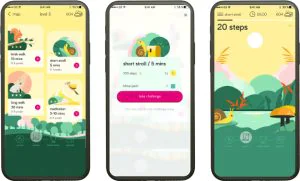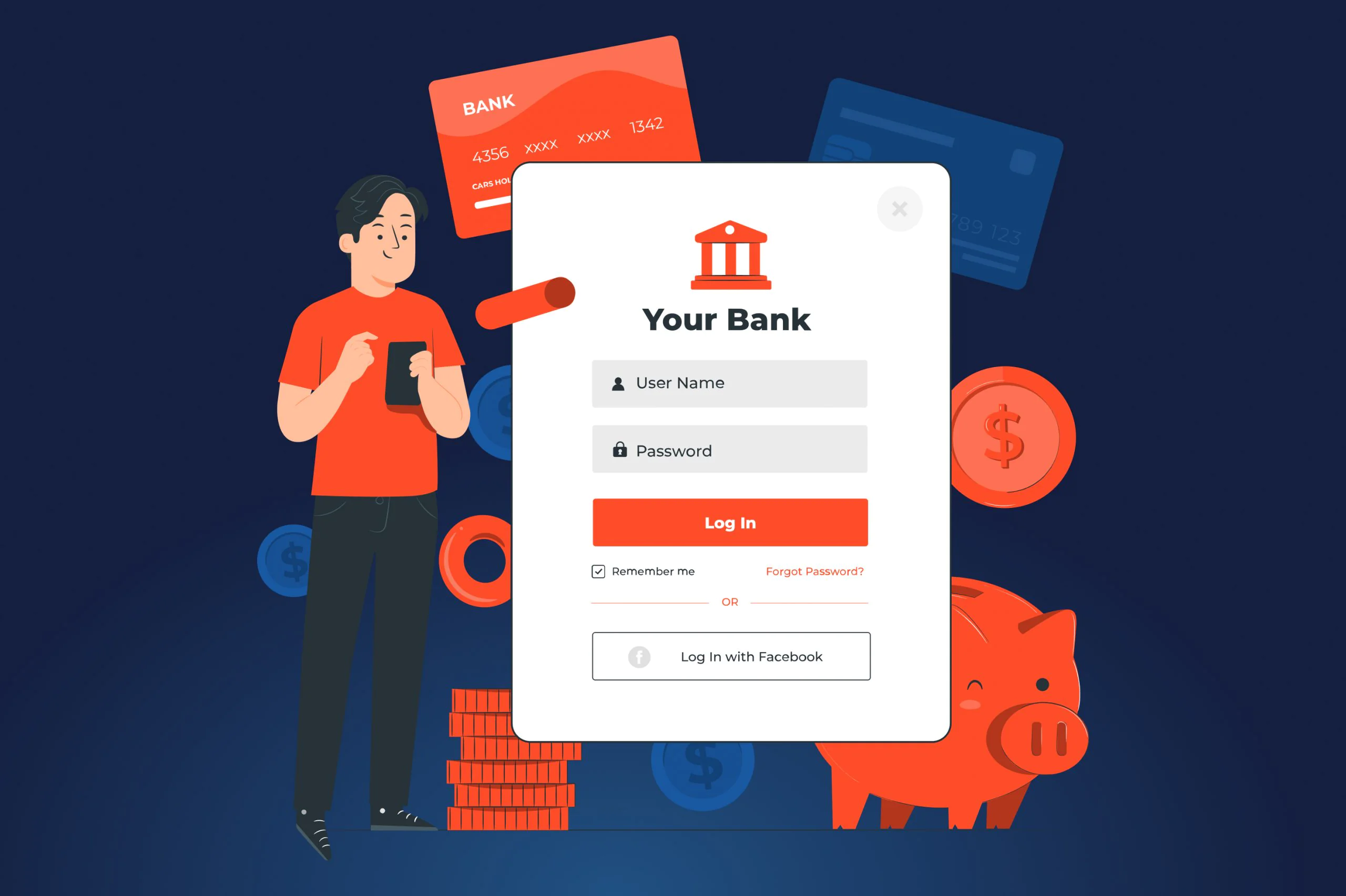“I cannot give you the formula for success, but I can give you the formula for failure. It is: Try to please everybody.” – Herbert Bayard Swope, a famous American journalist and editor.
If you’re dreaming of having a wildly profitable fintech business, finding a niche should be the first thing on your to-do list. This will help you not only better target your customers, but also differentiate yourself in a crowded market.
But the big question is what idea you should be going after to start a successful fintech company. The JatApp team has been through the fintech journey for more than seven years now, so we’d like to share some of our market knowledge to help you pick the most promising niche. In this article, we’ll explore different fintech businesses that came up with an idea that attracted investors and proved to be worthy.
But before we get started, let’s take a quick look at how the sector is doing today.
Investors see hope in the fintech startup market
In 2019, fintech companies were showering in investors’ money, attracting $215.1 billion dollars. In 2020, however, the investments suddenly dropped, reaching a value of $127.7 billion. But 2021 was more optimistic for the fintech industry, with the investment value increasing again up to more than $226 billion.
Fintech revenues are also witnessing a stable growth. The global industry revenues amassed €92 billion in 2018 and are expected to increase at an annual rate of 12% in the upcoming years. By 2024, the fintech revenues will amount to a mammoth €188 billion.
The most promising fintech startup ideas to disrupt the sector
Every successful business starts with an innovative idea. That’s why we’ve compiled a list of the best fintech startup ideas for you to consider before entering the highly competitive market.
Peer-to-peer money transfer solutions
Today, many economies worldwide are becoming cashless, which promotes the use of peer-to-peer payment solutions. Here’s how such apps work: a user finds a friend’s name in the contact list, indicates the reason for the transfer, specifies the amount to send, and presses the “send” button to pay off their debt. The application often includes a verification stage, asking a user to enter a PIN code before they transfer money. Some solutions also have the notification feature to remind a user to timely pay back to their friends.
Many people feel uneasy when it’s time to bring up money in conversation with their friends. Some find it hard to talk about cash or get down to calculations right after bonding experiences, like eating out at a restaurant. To address this pain point, one of our clients from the United Kingdom reached out to us to build a bill-splitting solution. We developed a mobile app that helps friends figure out who owes who and pay for their share without any awkwardness.
The bill-splitting app functionality
What is interesting about this app is that it has the percentage split feature. It allows users to easily make unequal payments by setting a percentage for each friend. On top of that, users can create groups of people with whom they often hang out to split the bill with no hassle.
The percentage split functionality
Personal finance applications
Money-saving apps have become insanely popular among gen Z and millennials, and for a reason. These generations faced economic turmoil many times in their lives: the Great Recession, a 10-year bull market, coronavirus crisis and inflation. Analytics predict that the demand for such solutions will get even higher over the next few years. The market value will grow from $0.94 billion in 2019 to $1.69 billion by 2030.
Personal finance apps usually help users track spending or plan out a budget. To give you an idea, let’s look at a payroll app we built for our German client that lets its employees access their financial records. With this solution, workers can view their payslips with tax deduction, which makes them better aware of their financial situation.
The payroll app functionality
Another relevant example is a budgeting app called You Need A Budget (YNAB). This solution helps its users get out of debt, figure out their financial goals, and start saving money. To make budgeting a summertime breeze, the application asks users to report on their financial habits and offers around the clock support.
YNAB app functionality
Crowdfunding platforms
Crowdfunding has become extremely popular mainly because it helps to directly connect with the public. A user presents their bold idea to the world, asks for funding in exchange for certain benefits, and voila – they receive solid capital to start or grow their business.
SeedInvest is one of the most successful crowdfunding platforms that helped more than 250 startups to raise almost half a million dollars. All that users have to do is sign up, fill in an application, and go through an intense vetting process, which filters out unreliable startups. If a user is accepted and their startup closes its round, the crowdfunding platform will take a percentage of its profits.
SeedInvest app functionality
Artificial intelligence (AI)-driven chatbots
Both ordinary customers and banks are in love with AI-powered chatbots today. With this technology at their fingertips, the former enjoy immediate answers to their burning questions 24/7, while the latter save lots of time and money by automating organizational processes. The statistics show that banks can save up to $11 billion annually thanks to chatbots.
AI chatbots can handle different tasks, like answering frequently asked questions, providing payment information, and offering financial advice, thereby allowing bank workers to focus on more challenging and complex work. Bank of America uses the chatbot called Erica, which can interact through both voice and text. Erica helps users manage their budget and encourage better financial habits.
Erica functionality
The chatbot can send a user a message like this: “You have an opportunity to get out of your debt by putting $100 aside each month. Would you like to hear me out?” Erica’s proactivity doesn’t end with finance management advice, however. For instance, the AI chatbot alerts users in case of upcoming payment or an opportunity to take part in the bank’s loyalty program.
Insurtech
During the global pandemic, insurance companies, along with many other businesses, were forced to shut their doors, leaving their clients unable to undertake many habitual tasks, like updating their accounts, resolving health issues, and so on. As a result, more than 40% of clients now want to replace their insurance company with more technology-driven providers. Besides, 53% of people aged between 18 and 24 admit that they prefer digital channels to communicate with their insurance companies.
Insurtech relies on technology to improve efficiency, business processes, and customer experience in the insurance sector. YuLife is an example of a digital life insurer. Though it might not sound as the most optimistic niche, the insurance app aims to eliminate the stigma around life insurance through a gamified interface. Users receive different incentives for meditating, walking, cycling, and similar activities and are able to compare their progress with their friends. The clients do everything to live longer, while the insurance company enjoys stable revenues. Win-win.
YuLife app functionality
Lending apps
During the Covid-19 crisis, many people and businesses were searching for quick loans to make their ends meet. Lending apps that analyze users’ behavioral patterns and credit history have become popular since then, as they determine whether a client can qualify for a loan or not.
To give you an example of lending apps, let us introduce you to Earnest, a company that offers low-interest loans based on users’ financial profile. The app asks the borrower how much they’re able to pay monthly and matches them with the term and rate based on their financial situation. Rather than relying on standard terms and rates, the solution utilizes personal data to provide home, car, student, and medical loans.
Earnest app functionality
Digital banking applications
These days, customers aren’t feeling super excited when they need to visit financial institutions, such as banks. They want everything to happen online from opening a bank account to ordering a credit card. It’s not surprising that in Europe alone the number of digital bank users is predicted to jump from 398 to 435 million between 2022 and 2024. Moreover, the survey results show that more than 60% of bank clients don’t mind using only digital banks in the near future.
Undoubtedly, the market is piping hot right now and waiting for your innovative idea that will continue to disrupt the sector. Monese, a British digital bank, hasn’t missed this fintech boat. One of the most successful fintech startups offers accounts to everyone, including foreigners and students. The app neither requires an address in the United Kingdom nor performs credit checks. Users just need to take a photo of their passport and a selfie. In case any questions arise, Monese staff is ready to provide support in 14 languages right in the app, and via email or phone.
Monese app functionality
Have a bold idea in mind? Let JatApp help you turn it into reality
From AI-driven chatbots to digital banking apps, these solutions are transforming the way people manage their finances. The seven promising fintech app ideas we mentioned in this blog post highlight juicy opportunities for entrepreneurs. And since the market is soaring now and shows no signs of saturation, now is the perfect time to found your own innovative fintech startup.
If you need technical expertise to build your software, you can always count on JatApp. Having crossed a 200-project milestone, we have an old hand at fintech software development, including payment gateways, banking software, insurance solutions, and personal finance management apps. Our fintech clients are fully satisfied with their products and share their excitement from the final results on Clutch. Here’s just one of them:
“During the first couple of introduction meetings the JatApp team demonstrated to us in practice their knowledge and expertise which made us feel confident that they could deliver what we were expecting, on time and on budget.”
Need help with fintech app development? Feel free to leave us a note and we’ll reach you out soon.














